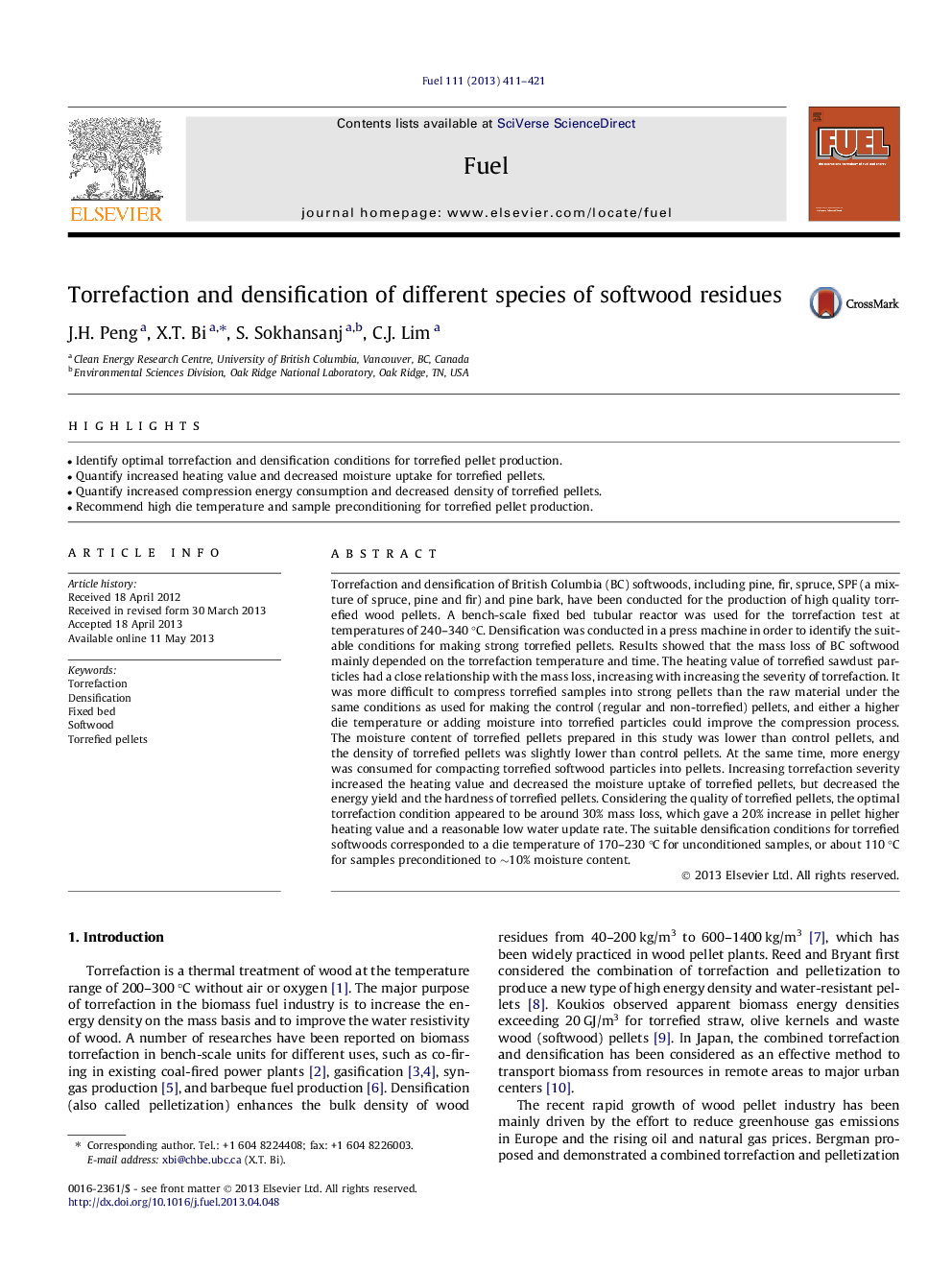| Article ID | Journal | Published Year | Pages | File Type |
|---|---|---|---|---|
| 6640457 | Fuel | 2013 | 11 Pages |
Abstract
Torrefaction and densification of British Columbia (BC) softwoods, including pine, fir, spruce, SPF (a mixture of spruce, pine and fir) and pine bark, have been conducted for the production of high quality torrefied wood pellets. A bench-scale fixed bed tubular reactor was used for the torrefaction test at temperatures of 240-340 °C. Densification was conducted in a press machine in order to identify the suitable conditions for making strong torrefied pellets. Results showed that the mass loss of BC softwood mainly depended on the torrefaction temperature and time. The heating value of torrefied sawdust particles had a close relationship with the mass loss, increasing with increasing the severity of torrefaction. It was more difficult to compress torrefied samples into strong pellets than the raw material under the same conditions as used for making the control (regular and non-torrefied) pellets, and either a higher die temperature or adding moisture into torrefied particles could improve the compression process. The moisture content of torrefied pellets prepared in this study was lower than control pellets, and the density of torrefied pellets was slightly lower than control pellets. At the same time, more energy was consumed for compacting torrefied softwood particles into pellets. Increasing torrefaction severity increased the heating value and decreased the moisture uptake of torrefied pellets, but decreased the energy yield and the hardness of torrefied pellets. Considering the quality of torrefied pellets, the optimal torrefaction condition appeared to be around 30% mass loss, which gave a 20% increase in pellet higher heating value and a reasonable low water update rate. The suitable densification conditions for torrefied softwoods corresponded to a die temperature of 170-230 °C for unconditioned samples, or about 110 °C for samples preconditioned to â¼10% moisture content.
Related Topics
Physical Sciences and Engineering
Chemical Engineering
Chemical Engineering (General)
Authors
J.H. Peng, X.T. Bi, S. Sokhansanj, C.J. Lim,
